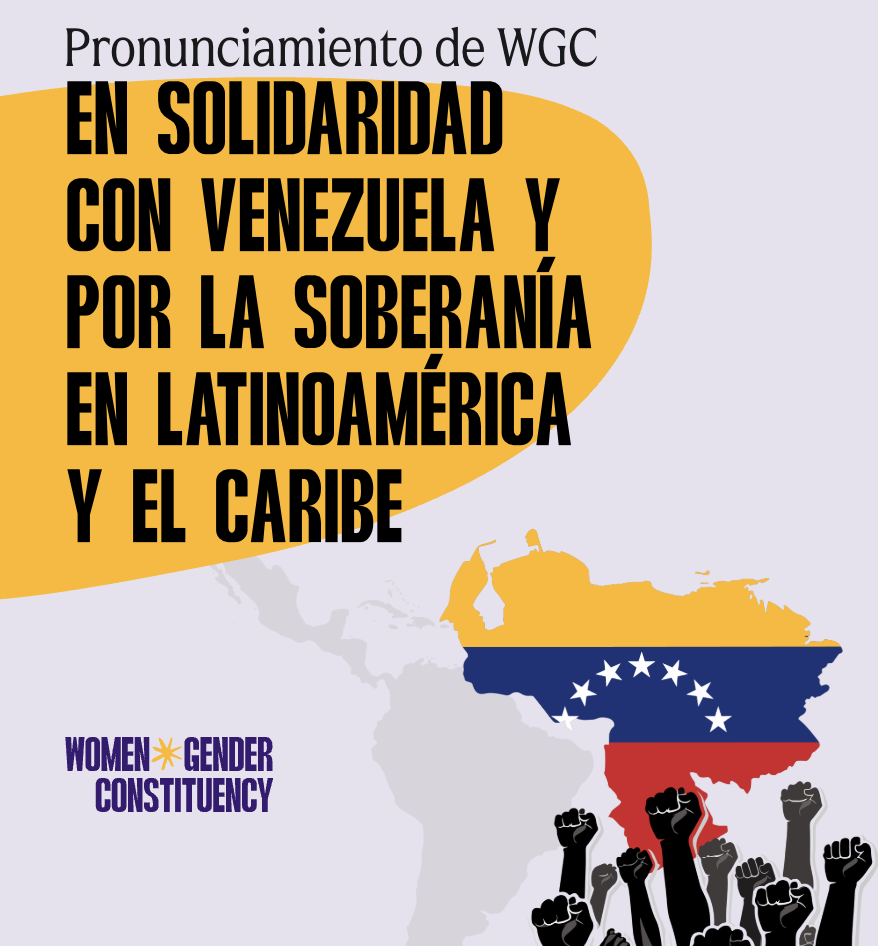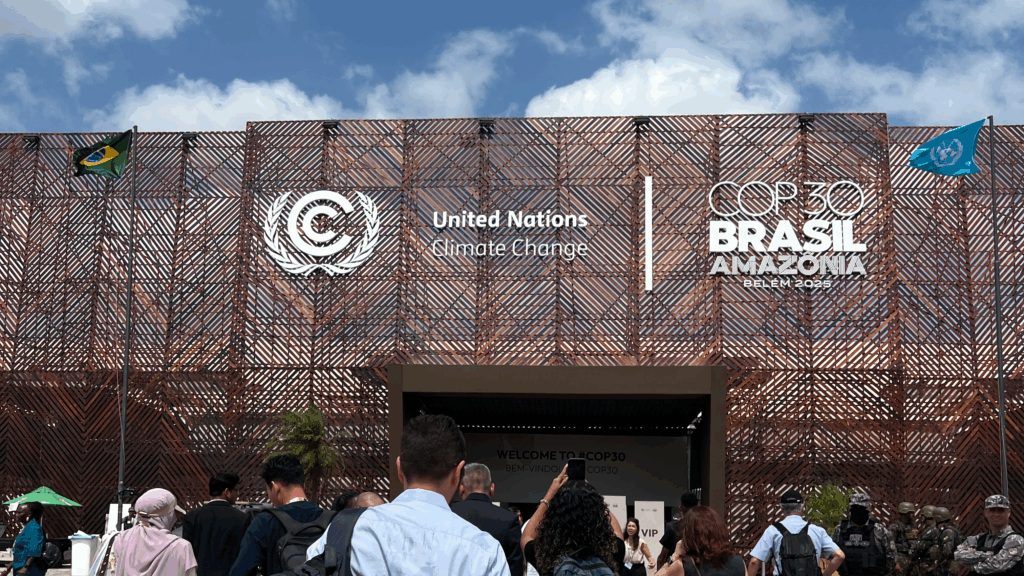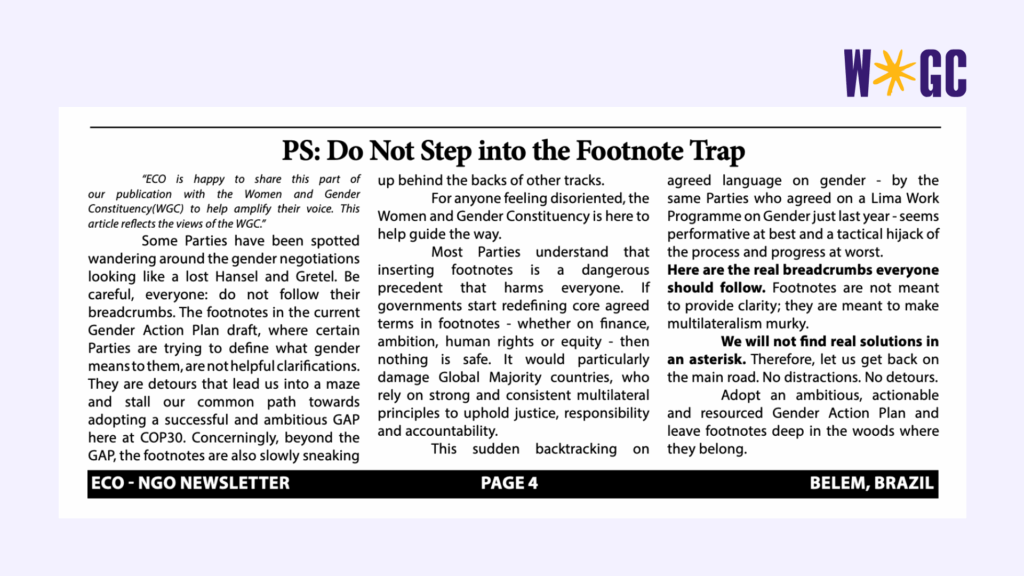Gender equality is not a sideshow, not a thematic day, not an opportunity to host an event at your Pavilion.
We need Parties to step up and make this process about outcomes that serve women and girls in their full diversity at the frontline of climate impacts and forefront of climate solutions. Parties need to step up, at the negotiating table, in prioritizing a robust outcome or a rethink of the entire approach. Parties need to step up in prioritizing gender in the negotiations, in coordinating with the resources and dedication of agenda items such as finance and creating a real, detailed vision of what a GAP could accomplish. Parties need to step up in resourcing the GAP activities, in ensuring their implementation in all the days and weeks and months between COPs.
As is, adoption of this text contributes so little to the work of gender equality that we cannot claim having a decision is a substantive outcome of this COP. We have learned from this review that we must look elsewhere, outside the UNFCCC, for real commitment to gender-just climate action. We will continue to seek the spaces where action is valued more than talk.




